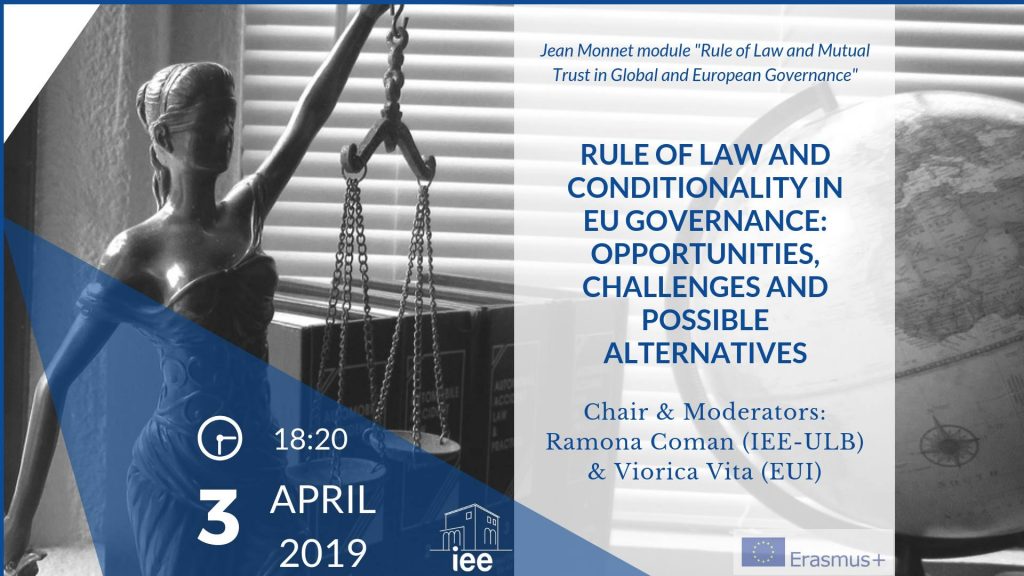Rule of Law and Conditionality in EU Governance:
Opportunities, challenges and alternatives
The Context
On May 2, 2018 the European Commission has put forward its proposal for the establishment of a rule of law conditionality [COM (2018) 324]. If adopted, the latter would allow the Council at the proposal of the Commission to cease all or part of EU funds in Member States with generalised rule of law deficiencies.
The proposal enjoyed a high level of support but has also attracted important criticism. On the one hand, the conditionality may be seen as an important tool to discipline Member States challenging the founding values of the EU, in the context in which all other sanctions, including the procedure of Article 7 TEU, proved highly ineffective. One the other hand, legitimate concerns may be raised with regards to the impact of conditionality on the principle of equality between Member States, legality of EU action and limits of EU competence. Similar strong concerns may be raised regarding the expected low effectiveness of the tool, and political impact on mutual trust between EU Member States and the future of the EU integration.
Answering these questions is even more important, in the context of a continued proliferation of conditionality inside the EU, during the last decade, not limited to the rule of law conditionality. The current 2014-20 EU budget is replete with conditionality, principally, in the area of macroeconomic indicators, respect of numerous EU laws and policies. At the same time the proposals for the next 2021-27 financial period show a clear trend for expansion of conditionality in all EU spending envelopes.
Against this backdrop, the IEE-ULB has invited a high-level panel, composed of distinguished policy makers, experts and academics to discuss the opportunities, challenges brought by the rise of conditionality in the EU, as well as possible alternatives to governance by conditionality.
The event is organised in the framework of the Jean Monnet module “Rule of Law and Mutual Trust in Global and European Governance” coordinated by prof. Ramona Coman.
This expert panel is addressed to the IEE-ULB participants in the Executive Master in European Union Studies and the Institute’s alumni and seeks to bring together policy makers, civil society representatives, journalists and academics with an interest in discussing the use of the rule of law conditionality in EU governance from a political and legal perspective.
Speakers
- Laszlo Andor, Professor at Hertie School of Governance and IEE-ULB, former Commissioner for Employment and Social affairs
- Rossella Rusca, Expert EU cohesion policy, Permanent Representation of Italy to the EU
- Emanuele Rebasti, Member of the Legal Service, Council of the EU, Economic and financial affairs/EU Budget/Structural Funds Directorate.
- Dr. Julio Baquero Cruz, Member of the Legal Service of the European Commission, lecturer at the IEE-ULB
Programme
18:00 – 18:20 Check-in
18:20 – 18:30 Welcome address and introduction, Ramona Coman (IEE-ULB), Director of the IEE
18:30 – 19:10 Interventions by the speakers (10 minutes)
- Laszlo Andor, Professor at Hertie School of Governance and IEE-ULB
- Rossella Rusca, Expert, EU cohesion policy
- Emanuele Rebasti, Member of the Legal Service, Council of the EU
- Julio Baquero Cruz, Member of the Legal Service of the European Commission, lecturer at the IEE-ULB
19:10 -20:00 Discussion
Viorica Vita, Researcher, European University Institute
Q&A session
Location & Contact
Institut d’études européennes ULB, 39 avenue F.D Roosevelt, 1050 Brussels, Belgium
